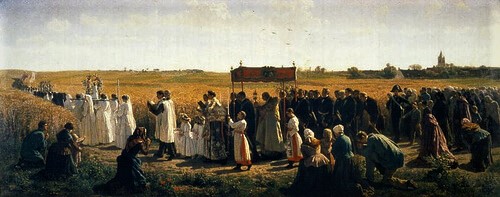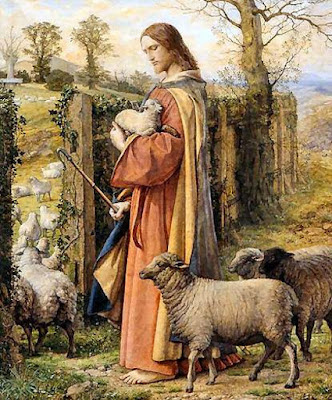One day he met a very old man who was a stranger to him. This old man opened the scriptures to Justin, and explained the Christian faith. Justin understood this as the truth he had been looking for – he saw that it completed all of the partial truths had had been studying up until that time. After that encounter he constantly studied the Scriptures, and he lived the Christian faith. Having come to the knowledge of Jesus Christ, Justin devoted himself completely to the composition of many books explaining and propagating the Christian faith.
Among the most famous of the works of Justin are his two Apologies or Defenses of the Christian faith. He even presented these Apologies to the Roman Senate, in an attempt to stop the persecution of the Church. Some were convinced, and for a while the persecutions stopped, but eventually there were those in power who wanted to crush the Church because of their own wicked ways of living.
Among the most famous of the works of Justin are his two Apologies or Defenses of the Christian faith. He even presented these Apologies to the Roman Senate, in an attempt to stop the persecution of the Church. Some were convinced, and for a while the persecutions stopped, but eventually there were those in power who wanted to crush the Church because of their own wicked ways of living.
Justin was brought before Rusticus, the Prefect of Rome, and he was questioned about the doctrine of the Christians. Justin gave a complete defense of the Christian faith, but Rusticus himself lived a cruel and wicked life and so would not listen. He made Justin choose whether he would sacrifice to the gods or suffer a cruel scourging. Justin answered that he had always wanted to suffer for the Lord Jesus Christ because he knew it would bring him to heaven. The prefect sentenced Justin to death. He was horribly scourged, and then beheaded. This man who sought the truth and found it in Christ, became a great martyr for the faith.
O God, who through the foolishness of the Cross didst wondrously teach blessed Justin Martyr the excellent knowledge of Jesus Christ: grant to us by his intercession; that, driving away the errors that beset us, we may attain unto steadfastness of faith; through the same Jesus Christ thy Son our Lord, who liveth and reigneth with thee, in the unity of the Holy Spirit, ever one God, world without end. Amen.














_-_Nationalmuseum_-_18677.tif.jpg)









